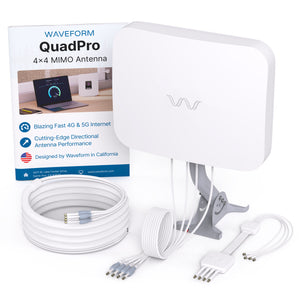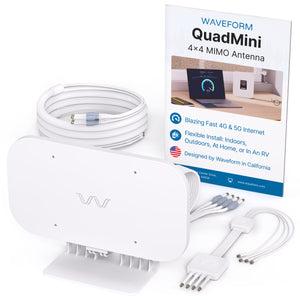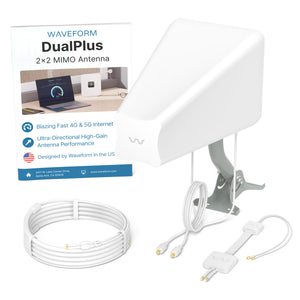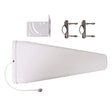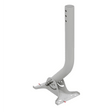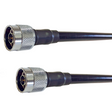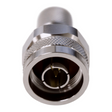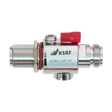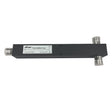Across the Twin Cities, organizations run into concrete walls, steel racking, and extreme temperature swings that wreak havoc on wireless performance. A single missed scan in a distribution center or a dropped video feed from a surveillance camera on a frigid January night can halt operations. One sector that feels this pain every day is cold-chain logistics, where freezers, metal shelving, and constant pallet movement make reliable WiFi almost impossible.
Why Minneapolis Facilities Need Private 5G
Minneapolis is home to a diverse economy that ranges from global healthcare manufacturers and Fortune 500 headquarters to the Upper Midwest's busiest intermodal freight corridors. Many of these sites occupy sprawling riverfront warehouses, multistory hospitals, or outdoor yards along Interstate 94. They all share two things: the need for uninterrupted data and the reality that public carrier signals fade quickly once you step indoors or behind dense concrete.
Private 5G uses Citizens Broadband Radio Service (CBRS) spectrum, which is both lightly licensed and interference-protected. Radios can operate at higher power than WiFi, so a handful of small cells blanket an entire campus that would otherwise require hundreds of access points. That translates into lower TCO, fewer cables, and less time on ladders during Minnesota's short construction season.
Harsh winters add another wrinkle. Temperatures that routinely dip below zero push WiFi and consumer-grade hardware beyond their limits. Industrially hardened private-network radios, scanners, and vehicle routers continue operating even when loading dock doors stay open for hours.
Industries And Venues That Benefit
- Distribution centers near MSP Airport and along Highway 169 rely on handheld scanners that roam from indoor aisles to outdoor yards. A private 5G network keeps every scan local, secure, and fast.
- Medical device and pharmaceutical plants around Maple Grove run automated production lines that cannot tolerate WiFi interference. Deterministic scheduling and Quality of Service in 5G eliminate that risk.
- Higher-ed campuses such as the University of Minnesota manage hundreds of security cameras and autonomous cleaning robots across large outdoor quads. Private 5G provides wide-area coverage without trenching fiber for each AP.
- Live-event venues in downtown Minneapolis face unpredictable crowds and congestion on public carrier networks. A dedicated slice of 4G/5G spectrum guarantees bandwidth for ticketing, concessions, and staff communications.
Heavy snow loads and energy-efficient Low-E glass further attenuate cellular signals in modern buildings, making commercial carrier service unreliable indoors. Private networks solve the problem at its source by bringing the radio core on site, shortening every path and giving you complete control.
Why Private 5G Beats WiFi And Public LTE
WiFi 6 and the upcoming WiFi 7 excel in carpeted offices but struggle outdoors or in RF-noisy factories. They share unlicensed spectrum with every neighbor, and power levels are capped at a fraction of what CBRS allows. Packet loss rises as forklifts and metal conveyor belts create multipath reflections. Latency, while acceptable for email, often exceeds the thresholds that modern automation systems demand.
Commercial 5G from AT&T, Verizon, and T-Mobile works well on Main Street, but enterprise devices must pay per-line fees and backhaul all traffic through carrier cores that sit hundreds of miles away. That round-trip adds latency, complicates integration with on-premise applications, and exposes sensitive data to the public internet.
Private 5G combines the best of both worlds. Like carrier 5G, it runs on 3GPP standards, supports seamless mobility, and offers predictable throughput. Like WiFi, it sits entirely under your control behind your firewall. You decide the quality of service policies, encryption keys, and user provisioning. Performance typically reaches 100-150 Mbps per device with sub-20 ms latency, more than enough for AR-guided maintenance or 4K video surveillance.
For a deeper technical dive, our Private Networks Guide explains spectrum tiers, deployment models, and device certification requirements.
Our Proven Design And Deployment Process
Waveform removes the guesswork that has traditionally slowed private cellular projects.
First, we deliver a Rapid Site Snapshot. You send us a floor plan or GIS file, the areas you need to cover, and the types of devices you will connect. Within a few days, we return a preliminary RF heat-map and budget range.
Next, we create a full RF model using industry-standard propagation tools. The result is a detailed proposal that includes a bill of materials, coverage maps, installation timeline, and service level agreement. Because we are vendor neutral, we may pair Celona CBRS radios with Peplink vehicle routers one day and Baicells eNodeBs with Zebra scanners the next, depending on your requirements.
Once a contract is signed, our field engineers handle turnkey deployment. We mount small cells, run fiber or PoE, commission the core, and hand you a Day One coverage report. Remote monitoring, firmware updates, and 24 x 7 support keep the network healthy for years to come. Need something fast for a temporary pop-up warehouse? Ask about our palletized "network in a box" kits that ship in a single crate.
Regional Expertise You Can Trust
While private networks are still new technology, Waveform has spent years delivering complex wireless infrastructure across the Midwest. A recent wireless deployment for Scotsman Ice Systems, a commercial ice machine manufacturer in Illinois, demonstrates our ability to design for high-current machinery and dense metal surfaces. You can read the full case study here. The same RF challenges that plagued their factory floors mirror what many Minneapolis facilities face.
Transparent Pricing
Budgeting for a private network should be straightforward. Indoor turnkey deployments generally land between 1 and 2.50 dollars per square foot, inclusive of design, hardware, installation, and first-year support. Outdoor coverage is even more cost-effective. In open terrain, a single CBRS radio can blanket up to a 1.5-mile radius. We routinely deploy campus-wide systems for approximately 100,000 dollars, a fraction of what a comparable Distributed Antenna System would cost.
Because we own no allegiance to any one hardware vendor, we can dial the solution up or down to match your ROI targets, whether you need 10 devices or 10,000.
Take The Next Step
Waveform is a connectivity integrator that delivers fully managed, turnkey private 5G network solutions in Minneapolis and beyond. Call us at (800) 637-4049 or get a custom private 5g design and quote today. Reliable, secure wireless starts here.























